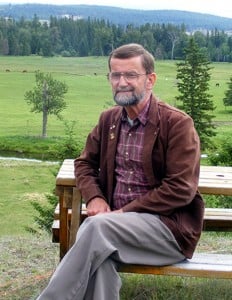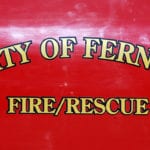Home »

B.C. forest fires are a provincial tragedy
 “Perceptions,” by Gerry Warner
“Perceptions,” by Gerry Warner
Op-Ed Commentary
This season’s forest fire tragedy unfolding around us is nothing less than an economic and ecological catastrophe and raises a troubling question – how bad can it get?
According to UN statistics, the largest forest fire in recorded history occurred in 2003 when a mammoth blaze erupted in eastern Siberia and burned 22 million hectares before it burnt out by natural means three years later. That’s right. The fire burned underground for two winters before finally expiring.
The Donnie Creek fire in northeast B.C., at 120,000 hectares the largest in B.C.’s history, is expected to do the same thing according to the BC Wildfire Service which is not fighting it because its remote location is not threatening people or structures.
Knowing this is surely cold comfort when you think of the forest fires to follow in the future as our planet relentlessly warms. So, what can we do to prevent forest fires from happening at all? We can’t stop lightning from zapping across the sky and causing the majority of forest fires. But we can do things on the ground to lessen the chances of lightning strikes setting off major fires.
For starters, we can pressure government to live up to its word and stop the cutting of old growth timber which is fire resistant because of its very nature. Old growth bark is thicker than the bark of younger trees and reluctant to burn except in the most extreme conditions. Shady old growth forests are also moister than younger forests and leave comparatively little undergrowth on the ground for fires to start in.
These grand monarchs of the forest also produce a thick canopy aloft and prevent the sun from hitting the ground and drying out the forest community as a whole.
So, with all these positive, fire-proofing features, why is the government allowing old growth to be liquidated? The answer is tragically simple. Clear cutting old growth is the fastest and easiest way for logging companies to make easy money and enrich their already rich shareholders. In turn, the tax revenues from cutting old growth fills government coffers with that same easy money enabling government politicians to buy our support come the next election.
It’s a simple formula and it has been in place in B.C. for more than a century – regardless of party and in all honesty has provided British Columbians with one of the highest standards of living in the world. But now the wolf is at the door wanting more. But “more” is no longer available because our forests have been cut to the point that our very homes are burning down and we no longer have the strength to deal with fire season in an accelerated period of climate change.
If you don’t believe me, consider the words of H.R. MacMillan, B.C.’s first Chief Forester and head of MacMillan Bloedel and Powell River Co., for half a century the province’s biggest logging company. “It is generally known amongst the few well informed that the forest is being over-cut at a devastating rate . . .” MacMillan ought to have known. His company was one of the biggest “over-cutters.”
So, how bad will it get? What will fire season be like in B.C. a decade from now? One shudders to think.
In three years, our provincial government has done little to enact its “strategic” report on old growth logging. In fact, recent surveys by environmentalists show clear cut logging increasing under the NDP as the government deliberately looks the other way to appease the forest companies and big labour. On the international stage, oil companies, mines and energy producers continue to make huge profits as the world warms at warp speed causing famines, floods and monstrous storms like Hurricane Idalia, which blasted Florida last week.
And it will keep happening unless we take extreme measures to slow the rate of climate change by slowing down the forces producing it; namely getting rid of fossil fuels, saving our dwindling forests, reducing greenhouse gases and living beyond the Earth’s ecological means.
How many of us are willing to do this? Not enough, I fear.
– Gerry Warner is a retired journalist, who fought forest fires several years in his youth.







